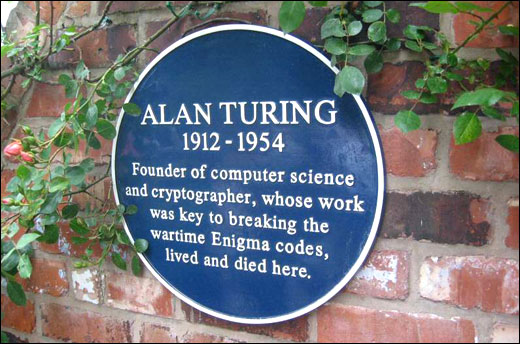British officials have ruled that Alan Turing cannot be posthumously pardoned for his convictions for homosexual acts. The government had already issued an official apology for the treatment.
Turing was a leading pioneer in computer science, helping develop one of the first computers that users could reprogram using stored memory, rather than the device being hard-wired. In effect, his work created what we understand as a computer today (as opposed to a single-purpose device.) He also helped crack the German Enigma encryption system during the second world war.
As we have previously covered, Turing was convicted in 1952 of gross indecency, which at the time covered his actions in having a sexual relationship with a man. He was forced to choose between imprisonment and chemical castration, opting for the latter. The conviction meant Turing lost security clearance to work on government encryption projects. Two years later he committed suicide.
In September 2009, after an online campaign and petition, then-Prime Minister Gordon Brown made a formal apology, noting that “The debt of gratitude he is owed makes it all the more horrifying, therefore, that he was treated so inhumanely.”
A later campaign called for Turing to receive an official pardon for his convictions. However, Justice Minister Lord McNally has said that such a move is not possible as under the British legal system and government policy, pardons are only given in specific circumstances. They are not given in cases where it later becomes clear the person did not commit the offense, but neither are they given in cases such as this where the offense itself has later been abolished.
Pardons are instead generally only given where the person concerned has committed the act but is “morally innocent”, the most famous example being the posthumous pardon of soldiers shot for cowardice during the first world war. McNally explained that, however repulsive the law may seem in hindsight, Turing used rational judgment in knowingly breaking the law and being aware of the potential consequences.
John Graham-Cumming, who led the original campaign for an apology, has previously said he agrees a pardon is inappropriate. As well as noting the legal barrier, he argues it would be unfair to pardon Turing without doing the same for everyone else convicted in similar circumstances. He also pointed out that then-pending legislation (which has now become law) means that although there are no pardons, the criminal records of anyone still living who was convicted of homosexual acts have been officially deleted.

